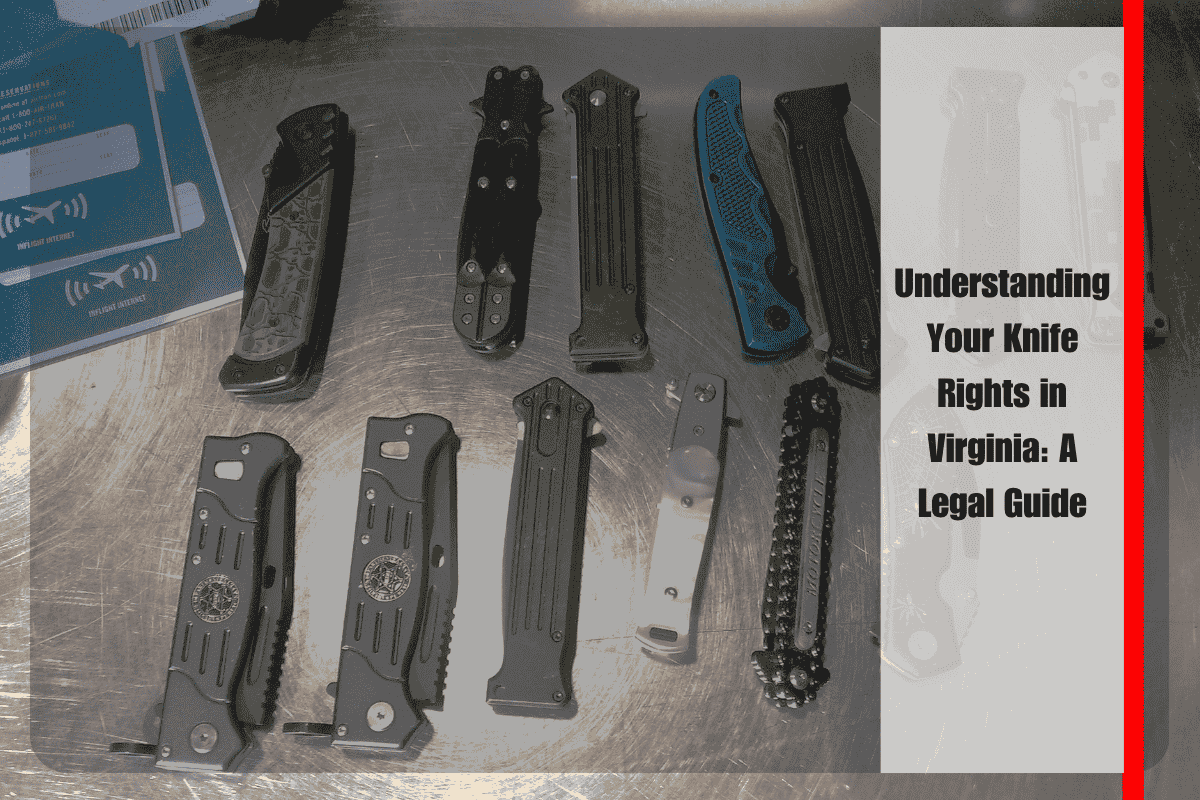In Virginia, the laws regarding knives can be complex, with specific rules for different types of knives and locations. Here is a legal guide to help you understand your knife rights.
General Knife Carry Laws
- Open Carry: Virginia law is generally permissive of open carry for most knives, meaning there are often no statewide length restrictions.
- Concealed Carry: This is where the law becomes more restrictive. It is unlawful to conceal carry a “dirk, bowie knife, ballistic knife, machete, razor, throwing star, oriental dart,” or any “weapon of like kind.”
- Switchblades: The laws on these have recently changed. As of July 1, 2022, possession and transfer are legal, and as of July 1, 2023, they were removed from the list of concealed weapons.
- Intent and “Weapon of Like Kind”: The law can be subject to interpretation. Whether a knife is considered a “weapon of like kind” is often a question for a judge or jury, and is influenced by the knife’s design and your intent for carrying it.
Blade Length and Specific Restrictions
While there is no statewide blade length limit for general carry, there are very strict restrictions in specific places:
- Schools and School Property: On school grounds, only pocket knives with a folding metal blade less than three inches are permitted. Carrying any other knife is a Class 1 Misdemeanor.
- Courthouses and Airports: It is unlawful to carry any knife, except for a pocket knife with a blade less than three inches, in courthouses and airport terminals.
- Brandishing: It is a Class 1 Misdemeanor to brandish a machete or other bladed weapon with the intent to intimidate.
Defining “Concealed”
A knife is considered concealed if it is “hidden from common observation.” This is also a matter of fact for a judge or jury, and depends on the circumstances. Even if a small part of a knife (like a pocket clip) is visible, it could still be considered concealed if the rest of the knife is hidden in a way that disguises its nature as a weapon.
Exceptions to the Rules
Exceptions to these laws typically exist for certain individuals and circumstances, such as:
Knives carried for a legitimate purpose between a place of abode and a place of purchase or repair, provided they are unloaded and securely wrapped.
Law enforcement officers and military personnel while on duty.
Individuals engaged in lawful hunting.
Sources
[1] https://tkellknives.com/knife-laws-in-virginia-a-detailed-guide-to-legal-carry/
[2] https://nobliecustomknives.com/us-knife-laws/virginia-knife-laws/
[3] https://www.tosahwi.com/blogs/virginia-knife-laws
[4] https://www.battlbox.com/blogs/carry-laws/can-you-open-carry-a-knife-in-virginia-understanding-the-legal-landscape
[5] https://www.smplclaw.com/blog/2025/03/virginia-butterfly-knife-laws-facing-illegal-possession-charges/













WRONG WRONG WRONG
Jan 2025 Virginia passed the law to allow swithblade knives.
In Virginia, switchblade knives are legal to possess, sell, and purchase as of January 2025. The repeal of the previous ban on switchblades was enacted through Senate Bill 758, which came into effect on July 1, 2022. This legislation allows individuals to legally own and carry switchblade knives, including both open and concealed carry, as long as they do not violate any other laws regarding weapons or carrying concealed knives.
self-defensetools.com
“I will ensure the article reflects the correct legal status once my research is complete. Thank you again for helping me improve the content.”
So what is the requirement of the length of a pocket knife that you carry in your back pocket.
Thank you for the helpful feedback. Virginia law does not specify a maximum length for a pocket knife for general carry.
Your article is incorrect. You should have actually did the research before writing. Switch blade and automatic knives are absolutely legal to own and carry. Please correct your mistake and rewrite this article with actual facts.
“I will ensure the article reflects the correct legal status once my research is complete. Thank you again for helping me improve the content.”